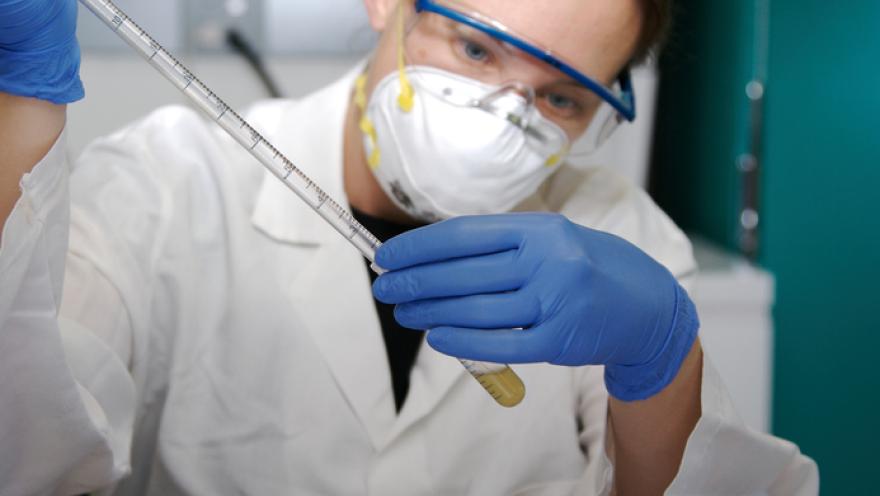Biogen has acquired KPT-350, a potential ALS therapeutic that has been investigated in preclinical trials to treat ALS by researchers funded by The ALS Association’s Lawrence and Isabel Barnett Drug Development Program and The Milton Safenowitz Postdoctoral Fellowship Program, Karyopharm Therapeutics recently announced. Biogen acquired KPT-350 in a $10 million up-front payment agreement with Karyopharm, a deal worth up to $217 million in future milestones, plus royalties, to treat neurodegenerative diseases.
KPT-350 is an oral drug that targets inflammation and neurotoxicity in the brain and spinal cord that demonstrates neuroprotective responses. This important partnership will advance KPT-350 research to forge its way to enter an ALS clinical trial in the near future.
“Although the treatment of ALS has advanced in recent years, there remains an immense unmet need for new, effective oral therapies,” said Sharon Tamir, Director, Strategic Product Development, Head of Neurodegenerative and Infectious Diseases at Karyopharm. “The support and guidance provided by The ALS Association and, in particular, Dr. Bruijn were an integral component of the KPT-350 research and development program at Karyopharm, allowing us to generate a robust preclinical data package and complete the important IND-enabling preclinical work that led to the acquisition of this promising asset. We believe that, given its convenient oral route of administration, combined with its ability to penetrate the blood-brain barrier, KPT-350 has the potential to become a new therapeutic option for patients suffering from this debilitating and eventually deadly disease, for which there is no cure.”
The Lawrence and Isabel Barnett Drug Development Program has enabled the development of novel therapeutics that are currently in clinical trials for ALS and related neurological disorders. It has been instrumental in building and fostering partnerships between academia and industry, and has contributed to the explosion in companies, small and large, entering the ALS field. Among other accomplishments, this milestone-based program made possible the development and clinical testing of antisense therapy against a common gene mutation in ALS, the first application of antisense therapy for any neurologic disease.
As a part of the Drug Development Program, we funded both Dr. Thomas Lloyd from Johns Hopkins University and Dr. Ronald Klein from Louisiana State University Health Science Center to carry out preclinical testing of KPT-350 to better understand its underlying mechanisms using multiple ALS models, including flies, mice, rats, and induced pluripotent stem cells (iPSCs). Important tests were also conducted to optimize the drug in preparation for clinical trials.
KPT-350 is an oral drug that readily crosses the blood-brain-barrier, which covers and protects the brain and spinal cord from harm. This is critical for drug development. The drug works by inhibiting nuclear export of multiple proteins that impact the nervous system’s inflammatory response. As a result, there is a reduction in inflammation and neurotoxicity, along with an increase in neuroprotective responses.
KPT-350 is an analog of KPT-330 (Selinexor), which is in advanced clinical trials for cancer and has a favorable tolerability profile. Also, it is currently in preclinical evaluation in models of multiple sclerosis and traumatic brain injury.
“Building academic and industry partnerships has been a major priority for The ALS Association’s research program since 2004. Funding made possible through The Lawrence and Isabell Barnett Drug Development Program has ensured the research program can continue to impact new treatments reaching the clinic. It is extremely rewarding to see the goals of the research program achieved with the recent investment into Karyopharm compound for ALS,” commented Dr. Lucie Bruijn, Chief Scientist, The ALS Association.
The ALS Association is hopeful in KPT-350 progress and looking forward to seeing it advance in its clinical development. Click here to support our Lawrence and Isabel Drug Development Program that is integral in moving potential ALS drugs into clinical trials.


Comments
Kills people. This drug might be the answer.
Join the conversation. Please comment below.